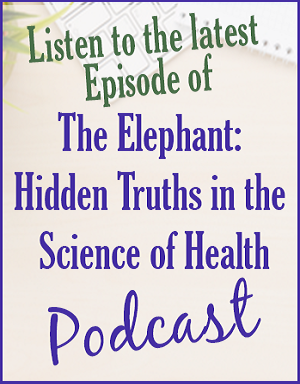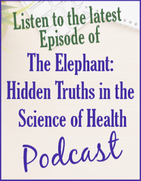Larry A. Law
Celery Powder
The Department of Agriculture's (USDA) National Organic Standards Board (NOSB) voted in October 2019 to continue keeping celery powder on its list of approved organic ingredients for the next five years. No problem, right? Apparently not. Some consumer advocacy groups (Consumer Reports and the Center for Science in the Public Interest (CSPI)) are pushing for celery powder's removal. Celery powder is not just a plant-based seasoning. It is highly effective in curing processed meats (sausage, deli turkey, bologna, bacon, ham, hot dogs, etc.) because it contains naturally occurring nitrates. Unlike synthetic nitrates and nitrites, which accomplish similar purposes for the meat curing industry, celery powder is treated differently by the USDA because it is a natural, organic ingredient. Meats 'cured' with this powder are allowed to be labeled as 'uncured' or 'nitrate-free.' Consumer Reports and CSPI want brands like Applegate and Niman Ranch to stop labeling their celery-enhanced products as "uncured." These consumer groups feel that naturally cured meats are no safer or healthier than the industry's artificially cured meats. In their mind, artificial, synthetic, man-made nitrites are equivalent to the nitrites in celery. Though technically distinct, the terms nitrates and nitrites are often lumped together on food labels and in discussions concerning their effects. Synthetic chemical compound examples are potassium nitrate and sodium nitrite. Both have been industrially used for several decades to suppress harmful bacteria in processed meats that could cause botulism. They also give processed meats a pinkish hue—bologna would be dirty gray in color if it didn't have these preservatives added. They also extend shelf life and add a singular, hard-to-describe, distinctive flavor to the meat. In the 1980s, consumer fears of harmful bacteria morphed into concerns over potentially carcinogenic preservatives. In the 1990s, celery powder came into favor because of its mild flavor and high concentration of natural, food-based nitrites. If one used radishes or beet powder, the meat would taste like beets and be an unsightly red. With mild celery powder, Whole Foods could sell a package of uncured bacon using celery powder that left it looking and tasting like bacon while stating "no nitrites or nitrates added" (just a little asterisk saying "except for those naturally occurring nitrates and nitrites in celery powder"). Health-conscious consumers felt much better about that.
Synthetic and Inorganic Versus Natural, Plant-Based Vitamins and Minerals
But recently, consumer advocates have tried to build a case saying that whether nitrites are man-made or come from celery or other vegetables, they are virtually the same chemical and undistinguishable to the human body. But this is not true. Our GrassRoots Movement (GRM) shines a light on this error. Despite what the pharmaceutical industry says, there is a huge difference between natural and synthetic vitamins and inorganic and plant-based minerals. Our Consumer Awareness Guide and our Wellness Journey Class explain how they differ. Even though the essence of the vitamin and/or mineral appears to be the same chemical structure, the surrounding food matrix and different geometrical orientations cause the body to react in ways that completely alter the metabolic processes involved. Numerous studies published in medical journals like the New England Journal of Medicine demonstrate that normal doses of laboratory-created, synthetic vitamins increase mortality by 47%, death from lung cancer by 46%, death from cardiovascular disease by 26%, and birth defects by 400%. Natural, plant-based vitamins and minerals never show harm at any dosage. Clearly, synthetic and inorganic vitamins and minerals are not the same as natural, plant-based ones. Common sense leads the honest investigator to realize that eating the same natural ingredients in celery or using powdered celery are not going to cause a disastrous side effect all of a sudden. As long as the processing does not alter the chemical structure of the natural ingredients, eating a stalk of celery or eating celery ground into a powder will both be safe and nutritious. If that were not true, then it would be such an easy test to perform—one wonders why no one has ever done it yet. The answer is that synthetic and inorganic vitamins and minerals are a multi-billion dollar industry. The industry doesn't fund a question that they don't want the answer to! Especially one that would throw unwanted attention on their scientific malfeasance and harm they have caused humanity. So, it will remain controversial as both positions lobby for their side.
Processed Meats Are Carcinogenic
Another concern that outweighs the controversy about nitrates involves cancer. The World Health Organization (WHO) has classified processed meats as a Group 1 Carcinogen, meaning they absolutely cause cancer. You can see my webinar here for details. No one knows for sure why they are so dangerous, but many scientists suspect the synthetic nitrate preservatives used. All of this information can be disturbing. Why doesn't the government convey these concerns to the public? At the very least, they could place warning labels on processed meats. In the meantime, to be safe, it is probably wise to limit your exposure to processed meats and make sure you have a diet based primarily on vegetables (i.e., eat meat sparingly—see my webinar on Red Meat and Cancer for information on which meats are safest and why).
4 Comments
Kelsie
10/10/2023 07:54:23 am
What!? Wow this blows my mind! So good to know thank you!
Reply
Larry Law
11/1/2023 06:58:57 pm
You are very welcome Kelsie!
Reply
Sherelle
10/10/2023 02:59:33 pm
Is there a difference eating grass fed beef versus regular one?
Reply
Larry Law
11/1/2023 07:01:54 pm
Hi Sherelle,
Reply
Leave a Reply. |
BlogArchives
July 2024
Categories
All
|
© Angie's Option GRM. All rights reserved.








 RSS Feed
RSS Feed

